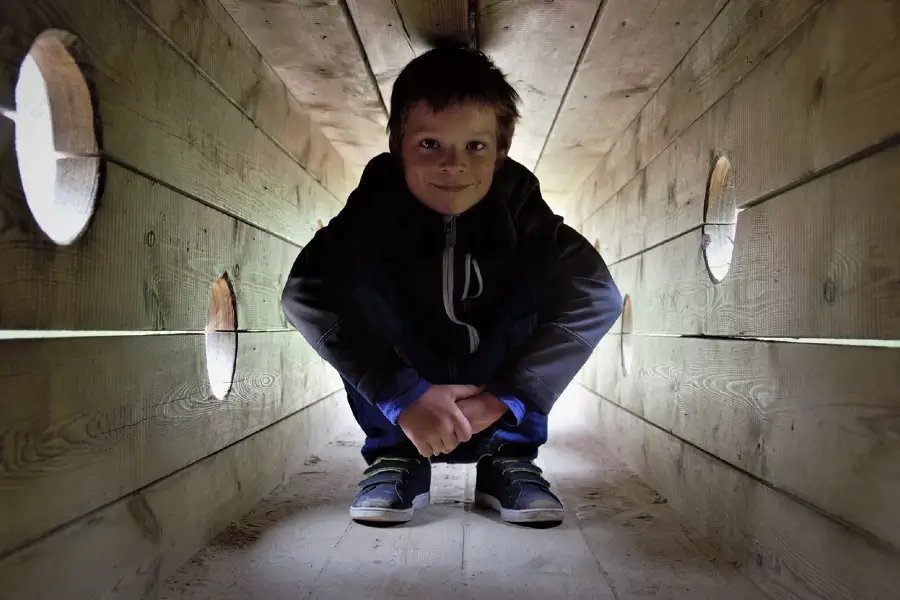Particularly beneficial for children who have Autism Spectrum Disorder (ASD) is the practice of parallel play, which is typically understood to consist of children playing near one another. It is possible that, initially, it will not include direct interaction. Yet, it can be an extremely helpful stepping stone in building social skills and maintaining confidence. Here is a more in-depth look at the reasons why children with autism spectrum disorder benefit from parallel play:
Controls the Overload of the Senses:
Parallel play allows children with autism spectrum disorder to participate in an activity that they enjoy while being in close proximity to other people. This allows them to avoid the overwhelming social pressure that comes with direct interaction. This can be especially useful for people who are sensitive to noise, touch, or social cues.
Fosters Observation and Imitation and Encourages:
Learning by Observation: Children with autism spectrum disorder (ASD) can quietly acquire social cues, communication styles, and proper play behaviors by witnessing their peers engaging in play. They can observe how other children engage with toys, take turns, and communicate their feelings.
Motivates People to Take Notice:
Witnessing the delight and interaction of other people can gradually ignite a child’s interest in social play. Progressive engagement can accomplish this. Although children might first play with other people, they might eventually feel compelled to take part in the activity on their own.
Creates a sense of comfort and confidence:
A secure environment for practice parallel play offers children with autism spectrum disorder (ASD) a secure and comfortable environment where they can explore social interaction at their speed. They can experiment with different social behaviors without the fear of being directly judged or of failing.
Contributes to the Development of Communication:
Even when they appear to be playing alone, children may communicate with their classmates through nonverbal signs such as smiles, looks, or gestures without actually speaking to each other. This facilitates the development of a mode of communication that can take place over time.
These skills can be transferred to other areas of their lives.
Advantages Extend Far Beyond Play:
Parallel play can help children develop social skills and confidence that can be applied to other elements of their lives. These skills can be transferred to other areas of their lives. They may have a better sense of readiness to engage in social interactions with their classmates, siblings, or other children outside of the context of play.
Make sure you don’t forget that parallel play is a stage, not a conclusion. When a youngster with autism spectrum disorder (ASD) gets more self-assurance and improve their social skills, they can naturally move toward more participatory play.
A few suggestions to foster parallel play are as follows:
Offer interesting activities: Establish play areas that contain toys and materials that are engaging for the child with autism spectrum disorder and their peers. These may include things like blocks, cars, tools for arts and crafts, or toys that stimulate the senses.
You can facilitate proximity by arranging the play area so that children are naturally driven to play near each other, even if they do not initially interact directly with one another.
Provide your child with positive reinforcement when they engage in social interactions. Recognize and commend them for even the most insignificant actions, such as making eye contact with another youngster or smiling at them.
As a result, they will be encouraged to continue developing their social skills and confidence in their ability to interact with their classmates.
Understanding that social skills do not develop overnight is an essential point to keep in mind. Each effort that your child makes, regardless of how insignificant it may appear, is a step in the right direction. By providing positive reinforcement, you are helping to reinforce these actions and creating an environment that is favorable for your child to grow and thrive socially.
Keep in mind that patience and understanding are essential. It is possible that some youngsters are more reserved or shy by nature, and they require additional time and encouragement to become comfortable in social circumstances. Your child will feel more at ease and capable of future social interactions if you celebrate each minor achievement, as these good experiences will help your youngster feel more comfortable.
Helping children with autism spectrum disorder (ASD) develop the social skills and self-confidence they need to thrive can be accomplished by raising awareness of the benefits of parallel play and providing supportive circumstances.

